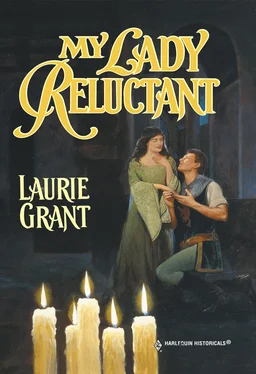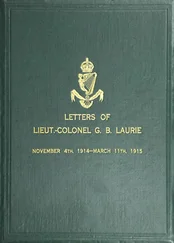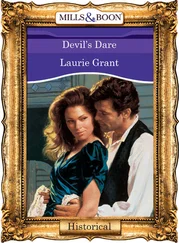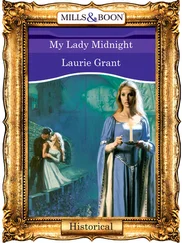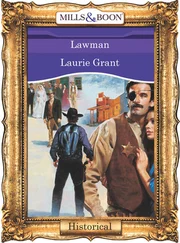His last words, shouted so loudly that they echoed off the stone walls, merely strengthened her resolve to be owned by no man. But before she could voice her resistance, her father spoke again.
“I haven’t given up my dream of having a holding in England, even if only through my daughter,” the count replied in his condescending way, “and actually, the empress has not left me without remedy,” the old man said, joining her at the window. “She bids me send you to wait upon her. As a lady-in-waiting to the empress, you are bound to catch the eye of some powerful and marriageable vassal of hers.”
“I? Go to England alone?” How could he send her to a country he had just described as torn apart by civil war? Yet, there were advantages to the idea, not the least of which was the pleasure of leaving behind a father who could not love her or even respect her. The empress was a powerful woman, even though she was having to fight to keep the crown her father, Henry, had bequeathed her. Matilda, a woman unhappy in her own marriage, would surely understand Gisele’s wish to control her own fate, and allow her to remain unwed.
Mayhap, once she was in England, she’d see this Alain, Baron of Hawkswell, and the lady he’d chosen over her.
“Nay, of course you would not be alone,” the old man snapped. “I believe I know what’s due to the heiress of l’Aigle. I would have to send a suitable escort of my knights along—a half dozen should be an impressive enough number, though I can ill spare them, you know—and old Fleurette to attend you. The knights will return as soon as they’ve delivered you to the empress, while Fleurette can remain with you.”
Thus ridding you permanently of two mouths to feed rather than one, eh, Father? The idea of her old nurse, now more of a beloved companion than a servant, coming with her was comforting enough to prevent Gisele from commenting on her father’s begrudging her even the temporary use of six of his knights.
Once she was in England, all would be different.
“I vow, there is nothing more to bring up but my toenails,” moaned Gisele in the sheltered aftcastle of the cog Saint Valery.
“Yes, you’re no sailor, that’s sure,” Fleurette murmured soothingly as she smoothed the damp brown locks away from Gisele’s forehead as her lady lay with her head pillowed in her old nurse’s lap. “The Channel’s been smooth as glass from the moment we left Normandy. I’d hate to see how you’d fare in rough seas.”
“Well, you never shall, for I’m never setting foot on a ship again my entire life,” muttered Gisele, then grabbed the basin at her nurse’s feet as a new round of spasms cramped her belly.
“What, never returning home?” asked the old woman in shocked tones. “Of course you shall return to Normandy, if only to allow your father to meet the fine lord you will marry, and to show him his grandchildren.”
Gisele had yet to confide in her former nurse that her plans were different from those her father had made for her, and she didn’t have the energy to do it now, so she merely played along.
“Of course I shall go to Normandy to show off my husband and the babes he shall give me,” she told Fleurette with a wan attempt at a smile. “I’m sure we shall be so blissful that it will be no effort at all to just float across the waves….”
“Ah, go on with you, then!” Fleurette said, giving her an affectionate pat. “You always did have a ripe imagination!”
“I have an imagination? ’Tis you imagining me with a husband and babe in a triumphal return to l’Aigle, long before we have so much as landed in England, let alone met any of Matilda’s marriageable lords.”
“Eh, well, I don’t know what your lord father can be thinking of, sending you off to a country in the grip of civil war—”
“England lies ahead!” called the lookout in the crow’s nest.
Within an hour of landing, they were on their way to London. Gisele, exhausted from the hours of retching aboard the tossing cog, would have liked to lie overnight in Hastings, and she knew the elderly Fleurette would have been better off with a night of rest. But Sir Hubert LeBec, the senior of the knights, was a hard-bitten old Crusader who clearly saw escorting his lord’s daughter as an onerous chore, to be accomplished as swiftly as possible. He allowed Lady Gisele and her companion just time enough to take some refreshment at an inn, but no more.
Gisele had thought just an hour ago she’d never be able to eat again, but now, revitalized by a full stomach and delighted to be back on firm ground again, did not begrudge her father’s captain his hurry. She was eager to get on with her new life, the life that would begin once she reached London, which was now held by the empress.
Lark, the chestnut palfrey she had brought from l’Aigle, had smooth paces and gentle manners, allowing Gisele to savor the beauty of the coastal area as they left the town behind. The countryside was decorated in the best June could offer. Blue squill garnished grasslands nearest the sea, giving way to white cow parsley banking the roadsides, mixed with reddish-purple foxglove. Some fields were dotted with grazing sheep; others looked like they were carpeted in gold, for the rape grown to feed pigs and sheep was now in flower. In the sky, skylarks and kestrels replaced the gulls that had ruled the air over the harbor.
So this is England, she thought with pleasure. Her father had called it a foggy, wet island, but today at least, she saw no evidence of such unpleasant weather. This is my new home. Here I will build a new life for myself, a life where I am my own mistress, at no man’s beck and call.
After she had been a-horse for some three hours, Gisele urged her palfrey up to the front of the procession, where the captain was riding with another of the men. “How far is it to London? Will we reach it tonight, Sir Hubert?” Gisele asked LeBec.
He wiped his fingers across his mouth as if to rub out his smirking grin. “Even if we had wings to fly, my lady, ’twould be too long a flight. Nay, we’ll lie at an abbey tonight—”
“An abbey? Is there not some castle where we might seek hospitality? Monastic guest houses have lumpy beds, and poor fare, and the brothers who serve the ladies look down their pious Benedictine noses at us,” Gisele protested, remembering her few journeys in Normandy.
“We’ll stay at an abbey,” Sir Hubert said firmly. “’Twas your father’s command, my lady. Much of southern England is sympathetic to Stephen, and the even those who were known to support the empress may have turned their coats since we last had word on the other side of the Channel. You’d be a great prize for them, my lady—to be held for ransom, or forcibly married to compel your father to support Stephen’s cause.”
His words were sobering. “Very well, Sir Hubert. It shall be as my lord father orders.”
He said nothing more. Soon they left the low-lying coastal area behind and entered a densely forested area.
“What is this place?” Gisele asked him, watching as the green fastness of the place enshrouded the mounted party and seemed to swallow up the sun, except for occasional dappled patches on the forest floor.
“’Tis called the Weald, and I like it not. The Saxons fleeing the Conqueror at Senlac once took refuge here, and the very air seems thick with their ghosts.”
His words formed a vivid image in her mind, and as Gisele peered about her, trying to pierce the gloom with her eyes, it seemed as if she could see the shades of the long-dead Saxons behind every tree.
“Then why not go around the Weald, instead of through it?” she inquired, trying not to sound as nervous as he had made her feel.
Читать дальше
